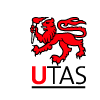Learning Plans
Developing learning plans is an effective way to negotiate agreements about learning between learners and supervisors. They are based on the principle that learners are active partners in the teaching-learning process rather than passive recipients of information. Learning plans sometimes include issues of assessment, and provide a useful mechanism for reassuring both parties about whether a planned piece of work will meet the requirements of a course.
Learning plans are particularly useful to facilitate learning in the professional setting because they document planned learning objectives and identify appropriate resources and strategies. There are a number of principles and ground rules for creating learning plans. For example it is important to document no more than four learning needs on this tool. Although documenting in this way will seem simplistic, it will motivate learners to produce explicit evidence of competence development that would have otherwise gone unnoticed.
|




